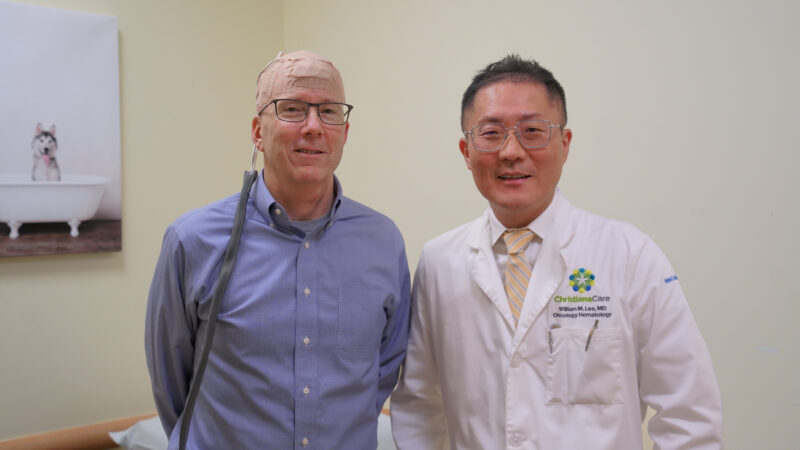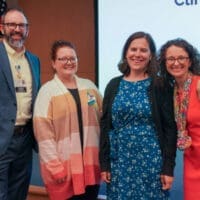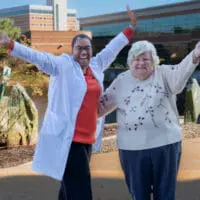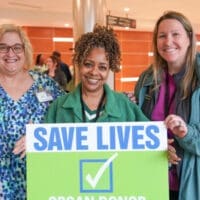

Words matter. So, when Tom Truman started loosing his, he knew something was very wrong.
“I was getting confused and mixing up what I wanted to say,” Truman recalled. The imaging tests his doctor ordered revealed the reason why.
Truman, at age 61, was diagnosed with a tumor in a part of his brain called the left temporal lobe just behind his ear. This type of tumor, called glioblastoma multiform or GBM, is the most common brain cancer tumor found in adults. Caucasian men over age 60, like Truman, are most often at risk.


Glioblastomas are very aggressive tumors that can grow and spread quickly to anywhere in the brain. They can damage healthy tissue and put pressure on areas affecting certain functions including language, hearing, thinking and emotions.
For Truman, time was ticking. Finding the right treatment team close to his home in New Castle, Delaware, who specialized in treating GBM was critical.
Truman found his team at ChristianaCare’s Helen F. Graham Cancer Center & Research Institute.
After surgery to remove the bulk of his tumor, Truman was introduced to medical oncologist William Lee, and an entire team of specialists in the Neuro-oncology Multidisciplinary Center.
“I admit I am fuzzy on the details of that first meeting, but I soon realized that my doctors had a plan for me that was the best approach to treatment I could get anywhere,” Truman said. “I would have driven hours for that treatment, but I didn’t have to.”
The neuro-oncology team includes experts who specialize in treating cancers of the brain, spinal cord and central nervous system.
Depending on each individual case, specialists from neuro-oncology, radiation oncology, medical oncology and neurosurgery gather to discuss and share perspectives on treatment with support from a nurse navigator, clinical trials research nurse and care management team.
“The Multidisciplinary Center is a proven, best-practices clinical approach that brought together an entire team of experts in all aspects of care for Tom’s glioblastoma,” Lee said.
“Additionally, our multidisciplinary neuro-oncology tumor board meetings provided another venue for discussing the complexities of Tom’s case from multiple perspectives,” he said.
“This is how we devise the best, personalized approach to treatment for the best possible outcomes.”
Truman’s team recommended daily radiation and oral chemotherapy for several weeks, followed by a supplemental six-month regimen of continued oral chemotherapy.
The Graham Cancer Center has one of the largest clinical trial programs among community-based hospitals in the country. Truman’s team was watchful for opportunities to participate in any ongoing glioblastoma research that might help to prevent his tumor from recurring.
They recommended him for enrollment in the Optune Gio™ trial. The trial is testing a medical device worn on the head that delivers alternating electrical fields to disrupt tumor cell activity in the brain. The goal is to ultimately destroy any cancer cells.
“I know I am getting the best care out there,” Truman said. “I had never been to the hospital before except to visit someone else. When it came to my turn, I was met with professionalism, skill and kindness.”
Truman has been an enthusiastic surfer for 35 years. There is no place he would rather be than off the coast of Cape May, New Jersey, catching a wave in the early morning.
“There is no feeling like it,” he said.
“Thanks to my doctors and the team at the Graham Cancer Center, I am looking forward to being out there again on the water,” Truman said — surfing on his short board and living life.


This post was originally published on this site
Share this Post







